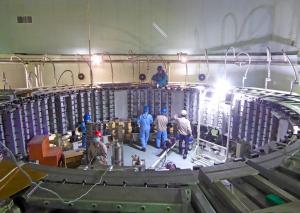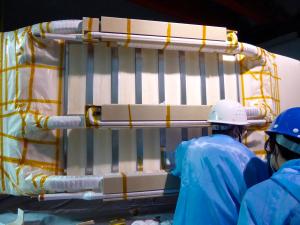The home stretch
In Hefei, China, a 400-tonne ring magnet procured by the European Domestic Agency is entering the final phase of production—resin impregnation. In just over one month, the component will be ready for packing and shipment to the ITER site.
Six years after a collaboration agreement was signed between the European Domestic Agency Fusion for Energy, responsible for procuring the component, and supplier ASIPP (the Institute of Plasma Physics/Chinese Academy of Sciences), ITER's sixth poloidal field coil, PF6, is being prepped for final coil impregnation.
Fusion for Energy and ASIPP teams have collaborated closely throughout the multiyear fabrication process, from qualification activities back in 2016 and 2017, through pancake winding and pancake impregnation. When it reaches the ITER site, the completed component will be delivered for cold testing to the European Poloidal Field Coils Winding Facility.
A ceremony for component completion is planned on 18 July at ASIPP.



